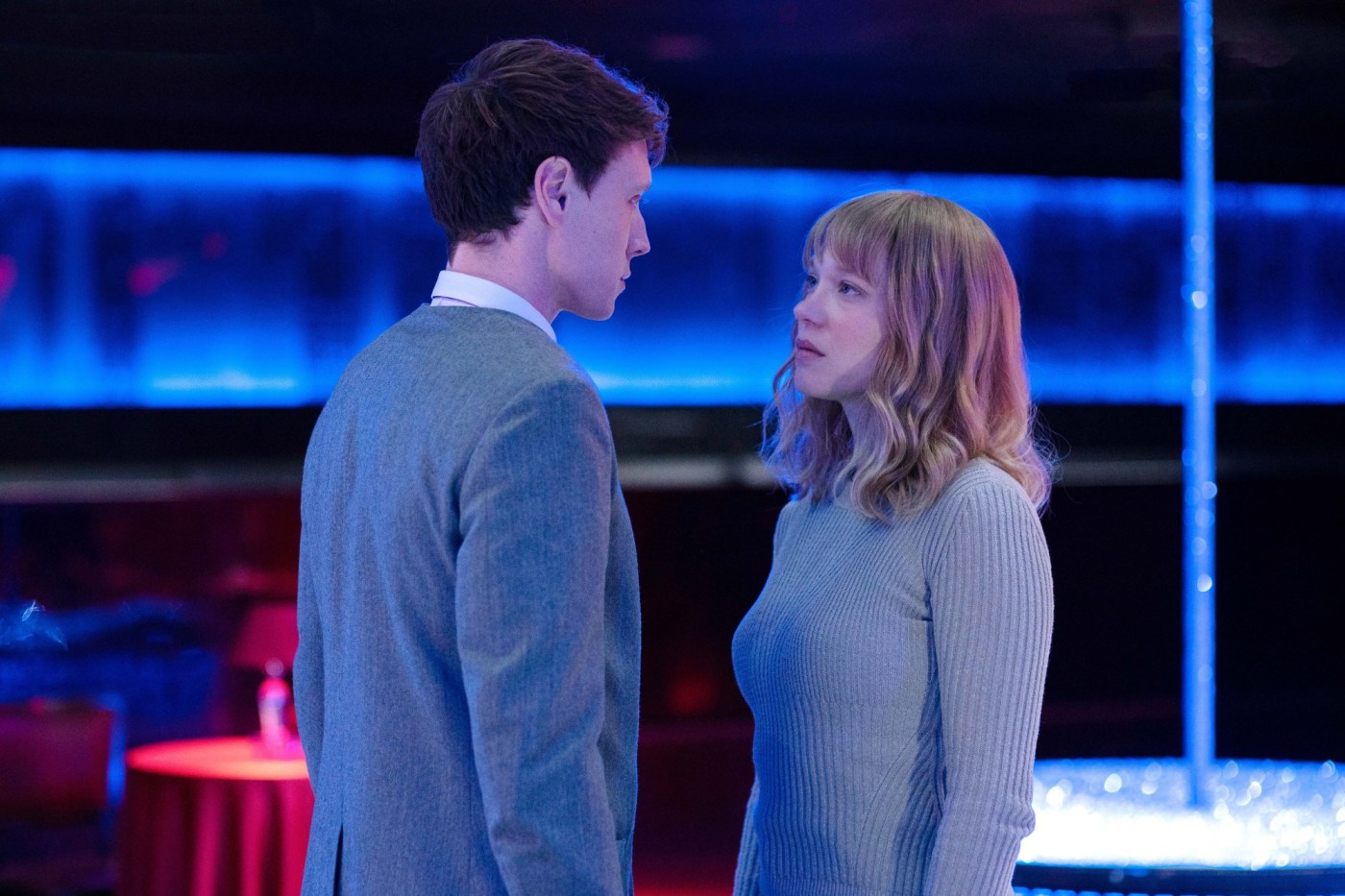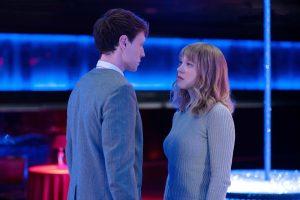
‘The Beast’ review: In 2044, AI takes care of business, while Léa Seydoux takes care of the movie
Truly this is the week for future shock — darkly compelling visions of a near-future that humankind can only interpret as a rejection letter, or a comeuppance for its determined lack of disaster prevention and preparedness.
Related Articles
Movie review: ‘Don’t Tell Mom the Babysitter’s Dead’ a surprisingly fun remake
Movie review: ‘Civil War’ well-crafted but has nothing to say
What to watch: Unsettling ‘Civil War’ is the ultimate what-if movie
A look at six Minnesota films and events at the Minneapolis St. Paul International Film Festival
‘Scoop’ review: Prince Andrew in the hot seat
The narratively straightforward “Civil War” has some far-out company, in other words. Now at the Music Box Theatre, cowriter-director Bertrand Bonello’s “The Beast” imagines a world 20 years hence. Climate change, and presumed corporate and political resistance to changing with it, have led to ruinous air quality, unlivable for humans without enormous masks and sealed buglike visors. Human unemployment hovers around 67 percent, thanks to the workforce dominance of artificial intelligence. The world has been saved by AI, we’re told in passing, and is run with reliable calm by humanoid dolls calling the shots, unburdened by the pesky brain chemistry and volatility of human “affects.”
In the 2044 Paris sequences of “The Beast,” the protagonist, Gabrielle — one of three Gabrielles we come to know, two of them past incarnations from 1910 and 2014 — seeks something more fulfilling than simple (and by the movie, undefined) drudgery work, the kind of thing humans used to believe AI would handle. Gabrielle’s emotions prevent her viability for better-paying jobs. She faces a decision point: Should she undergo “purification,” a zeroing-out of the psychic residue of her past lives? Or is a life of real feeling, even if surrounded by a sea of neutral faces and frictionless blank spirits, the better option?
In her previous selves Gabrielle was a celebrated pianist in the time of the momentous Paris flood (1910), then a struggling actress adrift in Los Angeles (2014). In each of the film’s three intertwined eras, her passionate artist’s heart belongs to the same man, Louis (George MacKay). Like Gabrielle, he undergoes wholesale personality and destiny makeovers in each time frame. Yet a pervasive fear of imminent catastrophe prevents Gabrielle from seizing the day, and the life she truly wants. She’s the gender-switched equivalent to the male character of the screenplay’s origin, the 1903 Henry James novella “The Beast in the Jungle,” though Bonello and cowriters Guillaume Bréaud and Benjamin Charbit pile their own fabulations atop fabulations, with imaginative impunity.
It all might’ve sunk under the weight of itself — if not for Léa Seydoux. No one in contemporary film expresses so much with eyes, voice, silence, small talk, whatever the moment requires, while repressing or hinting at so much more. Seydoux makes this trio of Gabrielles specific, droll and very moving, even when “The Beast” wanders a bit, or pulls from its various literary and cinematic influences — a little David Lynch, a little David Fincher, a lot of slightly curdled romanticism — to occasionally uncertain effect. MacKay’s good; Seydoux is excellent.
Bonello treats his layer cake of a movie as an occasion for a layering of genres. I found the 2014 LA narrative the least interesting, though certainly tension-building, since MacKay’s 2014 Louis is modeled after serial killer Elliot Rodger. For roughly 40 minutes of “The Beast,” we’re watching a virtual standalone thriller, with Gabrielle housesitting in a swank, cold glass domicile just begging for voyeurs, or worse. The dread that has dogged past versions of Gabrielle becomes manifest here, as MacKay’s incel stalker directs his lonely rage on women everywhere, anywhere.
This unbalances the movie, I think. And yet “The Beast” is an elegant cinematic achievement. Its devotion to the untamed territory of the human heart, its artfully discombobulating time and locale shifts, the shifting personae handled with marvelous fluidity by Seydoux; it takes you somewhere, and more than one somewhere.
“AI has become responsible and fair,” the 2044 Gabrielle is told by her unseen job interviewer, not human. Then, he adds: “And so human.” “The Beast” doesn’t need much in the way of digital imagery to create a strange new world; it’s enough to make Gabrielle audition for a phone commercial in a green-screen sound stage at the beginning (and later), where she pretends to see things she can only imagine. Later, Seydoux’s wearily reincarnated Gabrielle wanders the near-empty streets of the formerly beguiling City of Light, with only a stray deer for company. The sight is grimly amusing: tragicomedy. So is the telltale throwaway line early on, referencing Gabrielle’s childhood in America and her family’s abrupt return to France.
Why flee? Two words, which happen to be the title of the Alex Garland movie opening this week: civil war.
Is our civic, political and democratic collapse as dead certain as the movies are making it right now?
“The Beast” — 3 stars (out of 4)
No MPA rating (violence, some nudity, language)
Running time: 2:26
How to watch: Now playing at Music Box Theatre, 3733 N. Southport Ave.; musicboxtheatre.com. In French and English with English subtitles.
Michael Phillips is a Tribune critic.


